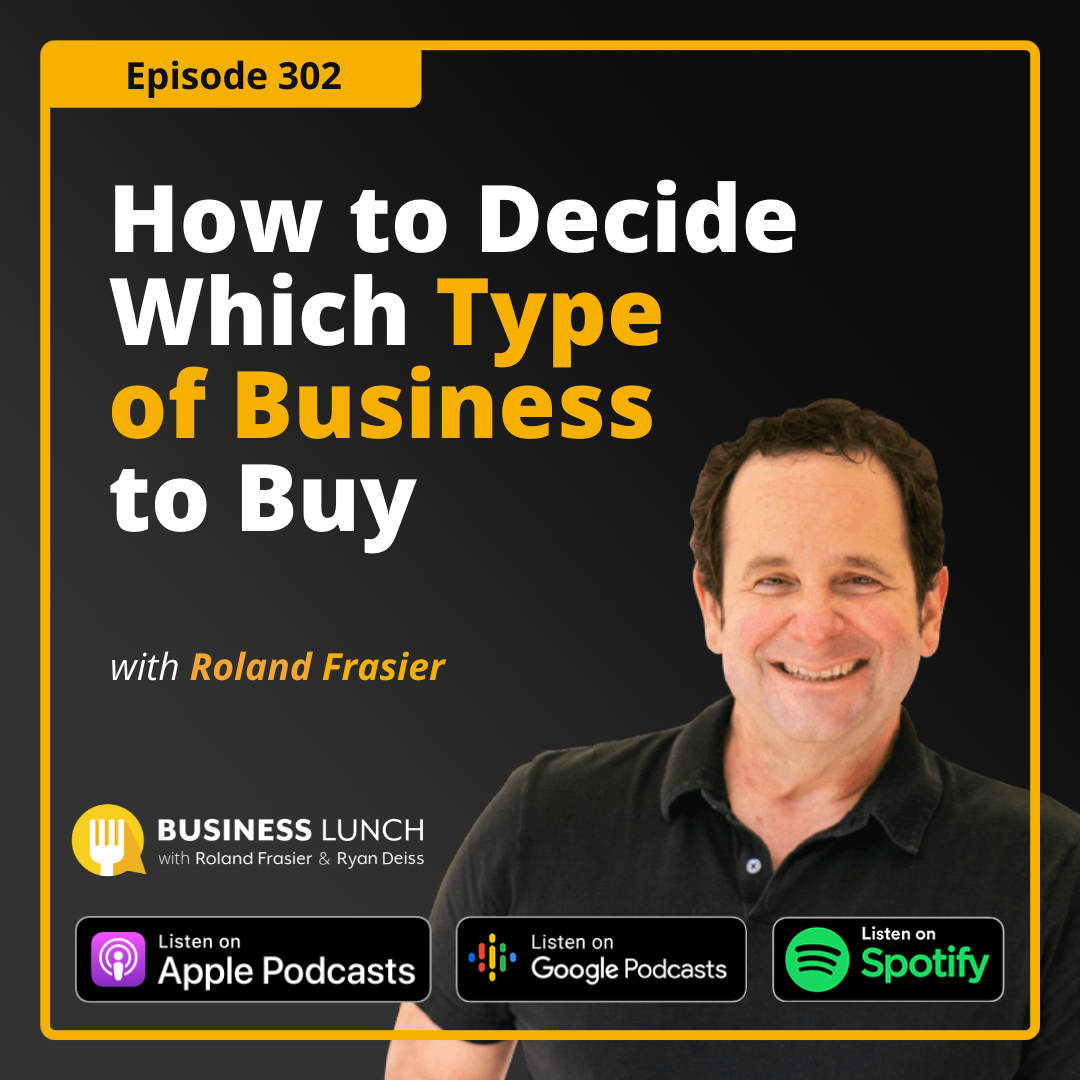If you’re thinking about acquiring a business, pass it through this set of filters first.
Roland Frasier has bought—and sold—a lot of businesses over the course of his career. He knows what to look for, and what to stay away from, and he shares his expertise in this snackable episode.
Listen in for 9 things to consider when looking to acquire a business.
#1: Buy a profitable business.
Don’t buy one that’s in trouble and needs a turnaround. That’s a whole different skill set and a lot of extra work. There are plenty of profitable businesses out there that you can acquire.
#2: Know if you want to work in, on, or above the business.
There are three places you can work when it comes to a business. You can work in it where you’re doing all the work. You can work on it where you’re more of a CEO/manager. Or you can work above it—Roland’s choice—where you’re thinking more of the business as a product or an investment. Where do you want to fit in the hierarchy?
If you want to be above, then you need to look for a business that’s not owner-operated. But owner-operated businesses are more affordable and readily available. If you do decide to buy one, you look first at the owner who’s selling. Maybe they don’t want to leave the business entirely. Maybe they still want to work there; they just don’t want to own it and have all the responsibilities.
If the owner wants to leave, and you don’t want to be the operator, there’s a good chance that there’s someone in a managing role in the business (the CFO, CMO, COO, or CRO) who would like to run it. That’s a good person to think about interviewing, because they already have the experience.
If not them, then maybe a key employee who has been there 15-20 years would love to step up into the role. Even if they’re not qualified to do everything, you can hire someone to support them.
If not them, look at consultants or contractors the company has hired in the past for key roles. They have a long history and knowledge of the company.
The next level is to query your network, to ask around. If that doesn’t work, you can hire a recruiting company.
#3: Stay away from industries with a lot of regulations.
If you want simplicity, steer clear away from these. If it’s in the health space, and you don’t have experience/credentials in the industry, stay away from it.
#4: Think about industries where you already have experience.
This will be very helpful and will give you a head start in growing your business.
#5: Consider an industry where you already have contacts or connections.
Do you have people who could advise or consult with you or connect you with people who could help?
#6: Find a business in an industry that’s growing.
One of the best ways to grow a business is to find one in an industry that’s already on a growth trajectory. A rising tide raises all ships.
#7: Find a business that’s likely to last.
Don’t buy a business that’s just a fad, like a Y2K business. That’s a very ephemeral industry. It’s fleeting. It’s not going to last long.
#8: Find a business you love.
If you’re passionate about it, it will be way easier. Just make sure all the other qualifications apply too (no regulations, in a growing industry, likely to last, etc.).
#9: Find a business that doesn’t require a lot of capital investment to keep it going.
An audio/visual business, for example, has a lot of technical equipment that has to be constantly updated. You’ll spend a lot of money on things that depreciate quickly. If you can find a business that’s simpler, and doesn’t require that capital expenditure, go for that one instead.
RESOURCES:
- ethicallyprofit.com
- getepicchallenge.com
- Scalable.Co
- The Ready to Lead podcast
- DigitalMarketer Podcast
- Perpetual Traffic podcast
OUR PARTNERS:
- Get a free proposal from Conversion Fanatics
- Get 3% cash back on your ad spend with AdCard
- Get Roland’s book, Zero Down, FREE
Roland’s EPIC Challenge.
You may have heard about Roland’s EPIC challenge, which he moved online when the Pandemic hit. It focuses on Ethical Profits In Times of Crisis and dives into no-money out-of-pocket business acquisition strategies. If you’re interested in finding out more about this strategy, click here.
Contact & Follow Roland
Through his Website.
Contact and Follow Ryan Deiss
Through his Website.


